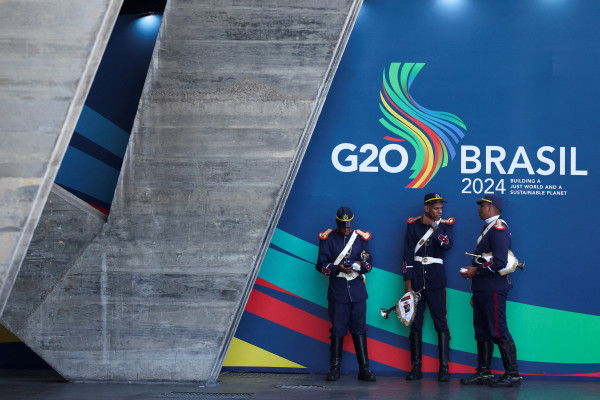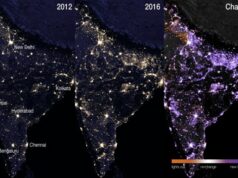
Leaders of the Group of 20 major economies began arriving on Monday at Rio de Janeiro’s Modern Art Museum for their annual summit, bracing for a shift in the global order with the return to power of U.S. president-elect Donald Trump.
President Luiz Inacio Lula da Silva received the heads of government on a red carpet at the museum where they will meet through midday on Tuesday.
Their discussions of trade, climate change and international security will run up against the sharp U.S. policy changes that Trump vows upon taking office in January, from tariffs to the promise of a negotiated solution to the war in Ukraine.
While U.S President Joe Biden arrives as a lame duck with just two months remaining in the White House, China’s President Xi Jinping will be a central player at a G20 summit riven with geopolitical tensions amid the wars in Gaza and Ukraine.
Diplomats drafting a joint statement for the summit’s leaders have struggled to hold together a fragile agreement on how to address the escalating Ukraine war, even a vague call for peace without criticism of any participants, sources said.
A massive Russian air strike on Ukraine on Sunday shook what little consensus they had established, with European diplomats pushing to revisit previously agreed language on global conflicts. The United States has also lifted prior limits on Ukraine’s use of U.S.-made weapons to strike deep into Russia.
New White House Priorities
Brazilian officials recognized that their agenda for the G20, focused on sustainable development, taxing the super-rich and fighting poverty and hunger could soon lose steam when Trump starts dictating new global priorities from the White House.
Brazil’s push for a reform of global governance, including multilateral financial institutions, may also hit roadblocks with Trump, Brazilian officials said.
Biden, who visited the Amazon rainforest on his way to Rio, is set to announce a pledge to replenish the World Bank’s International Development Association fund aimed at the world’s poorest countries, and launch a bilateral clean energy partnership with Brazil, a senior U.S. official told reporters.
Xi is expected to tout China’s Belt & Road initiative as it exerts its economic ascendancy. Brazil has so far declined to join the global infrastructure initiative, but hopes are high for other industrial partnerships when Xi wraps up his stay in the country with a state visit in Brasilia on Wednesday.
Brazil’s decision not to join was “a big blow to relations,” said Li Xing, professor at the Guangdong Institute of International Strategies, affiliated with China’s Ministry of Foreign Affairs. “China was very disappointed,” he said.
Trade talks around the G20 will be stoked by concerns of an escalation in the U.S.-China trade war, as Trump plans to slap tariffs on imports from China and other nations.
Trump’s tax-cutting verve will add to headwinds for Brazil’s efforts to discuss taxation of the super-rich, an issue dear to Brazil’s President Luiz Inacio Lula da Silva who put it on the G20 agenda.
Trump’s newest ally in Latin America, libertarian Argentine President Javier Milei, has already drawn a red line on the issue. Argentina’s negotiators refused to approve mention of the issue in the summit’s joint communique, diplomats said.
With Reuters inputs
Thirty eight years in journalism, widely travelled, history buff with a preference for Old Monk Rum. Current interest/focus spans China, Technology and Trade. Recent reads: Steven Colls Directorate S and Alexander Frater's Chasing the Monsoon. Netflix/Prime video junkie. Loves animal videos on Facebook. Reluctant tweeter.




